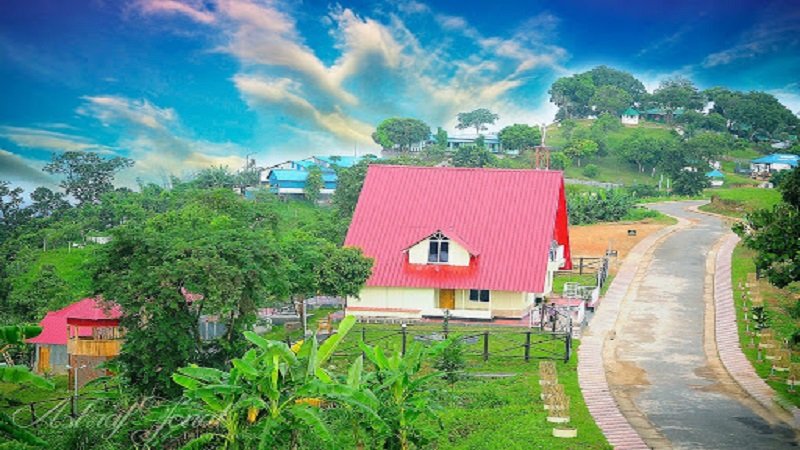The global outbreak of the Covid-19 has affected life and economy unlike anything the world has ever seen. The travel restrictions that came with this pandemic wreaked havoc on the transport and tourism sectors.
According to the United Nations specialised agency, World Tourism Organization (UNWTO), the Covid-19 pandemic has caused a 22 percent fall in international tourist arrivals during the first quarter of 2020.
UNWTO said the crisis could lead to an annual decline of between 60 percent and 80 percent when compared with 2019 figures.
The crisis in tourism business across the globe puts millions of livelihoods at risk and threatens to roll back progress made in advancing the Sustainable Development Goals (SDGs).
In Bangladesh, thousands of people involved in the tourism sector in the hill districts of Bandarban and Rangamati have been out of job and living a miserable life with families.
The buzz at the local handicraft shops, tourists-carrying transports, and all shops in hill districts have fallen silent. People, who are dependent on the sector, are finding it hard to make ends meet.
Sixty hotels, motels and resorts in Bandarban remained shut since March, leaving the owners to count huge losses every day, reports UNB’s Bandarban correspondent.
Meanwhile, the district was put under another 21-day lockdown from Thursday in the second phase as it was declared as ‘Red Zone’ (area with high number of coronavirus cases).
‘Paltry assistance’
Sirajul Islam, secretary of Bandarban Abashik Hotel, Motel & Resort Malik Samity, told UNB that they have been counting a loss of Tk 20 to 25 lakh every day for three months, while families of over 1,000 staff are having a hard time.
Most handicraft shops owned by local ethnic community people remained shut, he said adding that the pandemic left the whole district in great dismay.
Asked about assistance, Islam said the district administration provided Tk 1,000 to each to 270 hotel staff before Eid-ul-Fitr.
“Other than a small assistance, we’ve received nothing from the government,” he added.
Usually, over 40,000 tourists visit Bandarban daily and leave the district, said Sirajul Islam adding that they have lunch at different hotels here which have shut after the pandemic started.
“We have 5,500 residential hotel seats for tourists and all have been remaining vacant for the last three months,” he added.
He said hundreds of local transport workers, who basically carry tourists to different spots, became jobless.
Rangamati falls silent
All of 200 tourist boats are sitting idle without tourists for over three months.
Moinuddin Selim, president of Rangamati Hotel Malik Samity, told UNB that 50 hotel, motel and resorts have already counted over Tk 18 crore in loss since March.
Other sectors are also counting losses, he said.
“We were forced to axe our workforce as we couldn’t afford to pay them,” Selim said, noting that the staff and their families are going through an extremely difficult time.
More than 2,000 tourists visit different sites in Rangamati daily during February to June, he said adding that tourists’ rush generally goes down in monsoon.
“The loss we’ve already counted is really hard to recoup,” he said, noting that every day over 200 buses uesed to enter the district with tourists, which has stopped.
Selim urged the government to provide easy loans to save the tourism industry.
UNWTO Secretary-General Zurab Pololikashvili said the world is facing an unprecedented health and economic crisis.
“Tourism has been hit hard, with millions of jobs at risk in one of the most labour-intensive sectors of the economy,” Zurab said.
(Additional reporting by Oli Ahmed from Rangamati and Aminul Islam from Bandarban)

